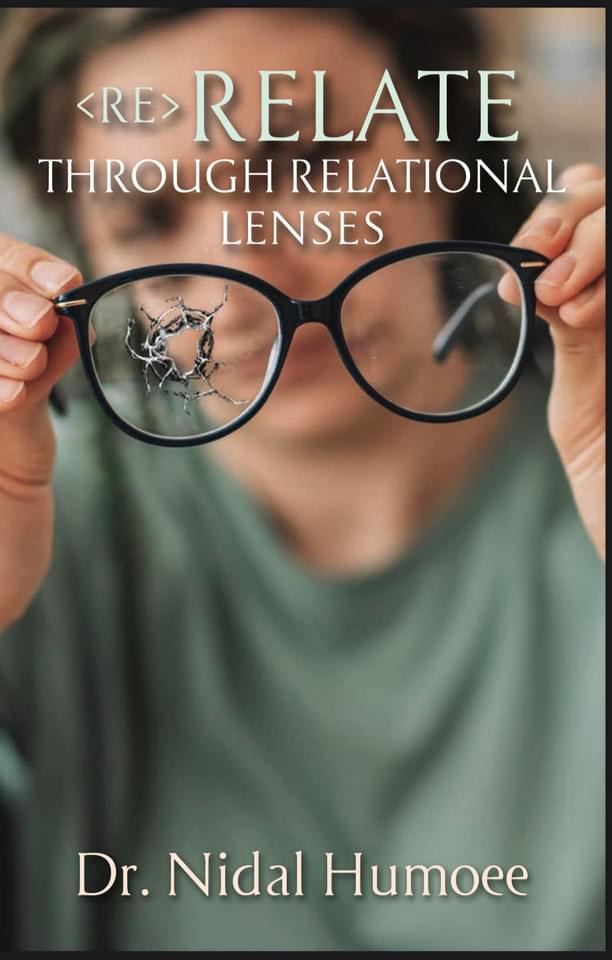 We begin our emotional development by storing enough love to bond with others. In relating to our caregivers through the bonding lens, we feel loved despite their physical absence. We then venture out, learn our boundaries, and relate through the distinctness lens. We evolve in freedom and responsibility and shed the distorted lenses of devaluation and compliance.
We begin our emotional development by storing enough love to bond with others. In relating to our caregivers through the bonding lens, we feel loved despite their physical absence. We then venture out, learn our boundaries, and relate through the distinctness lens. We evolve in freedom and responsibility and shed the distorted lenses of devaluation and compliance.
Having perceived our distinctness, we sense a dilemma. People do not seem to be what they pretend to be. They are different on the inside from what they display on the outside. We are alarmed to see righteous people committing wicked deeds. This dilemma seems like a puzzle we cannot solve. What is the truth about others? Are others bad but pretending to be good? Perhaps even more perplexing, are we good or bad on the inside?
We remember the time on our mother’s breasts. We perceived her to be good when she nursed us but thought she was wicked when she left the room, leaving us crying. It seems we experienced her good at times and evil at others. We just exclusively experienced each side alone. We split between the good and bad sides.
We readily brag about our goodness. However, Can we have wickedness too, but we do not detect it? Is it possible that we meticulously split between our inner good and evil? We may be terrified that if the bad were to mix with the good, all would be ruined.
We need truthful feedback from our trustworthy friends to recognize our flaws. Ephesians 4:15 “Instead, speaking the truth in love, we will grow to become in every respect the mature body of him who is the head that is Christ.” The Holy Spirit is the spirit of truth. He affirms us with His love before He conveys our flaws.
In recognizing our flaws, we grieve the loss of our old perceptions. The sadness we embrace signals a new room inside ourselves that we can use to accept more loving and responsible perceptions.
We won’t attempt to evade sadness at any price, for that will make us falsely cheerful, and aggravate our flaws. It’s only after we learn how to grieve our weaknesses wholeheartedly that we can celebrate our strengths joyfully.
Some of our flaws are false and stem from the distorted perception of our legitimate needs. For example, we may assume that our need for intimacy is shameful. But It is a need that is worthy of provision. Or we may indict ourselves for feeling angry instead of accepting our angry responses and recognizing our demands. We may speculate that pleasing any of our desires is selfish, which also is not necessarily true. Fulfilling some desires, if done responsibly and patiently, can be joyful. Proverb 13;19 longing fulfilled is sweet to the soul, but fools detest, turning from evil.”
We have to be mindful that we have genuine flaws. We commit injustice or act selfishly or devalue others.
We resolve the inner conflict by disclosing our flaws truthfully. James 5:16 “ confess to one another therefore your fault and pray for one another’s that you may be healed and restored”.
The recipients of our disclosure should be those who have settled their inner conflict. They have received grace for their flaws and, therefore, can administer grace to us. 2, Corinthians 1:4 “ who comforts us in all our troubles, so that we can comfort those in any trouble with the comfort we ourselves receive from God.” We don’t condemn ourselves nor accept others’ condemnation.
The gracious saints see us as genuinely good despite our flaws. It is the grace that we receive that makes us able to say no to flaws. Titus 2:12 NIV “It teaches us to say “No” to ungodliness and worldly passions, and to live self-controlled, upright and godly lives in this present age,”
I suggest using the word “ I “ in disclosing flaws. It conveys power and willingness to accept responsibility for flawed choices. There is no room to make excuses, blame others or play the victim.
Acceptance does not negate disagreement. When gracious, integrated others accept us, they still don’t approve of our flaws. They love the whole of us more than being repulsed by our weaknesses. We harness their grace and love to face our flaws.
As we allow grace to displace shame, our flawed parts merge gradually with the good ones. We become uniquely integrated, like a mosaic piece. Once we perceive ourselves as genuine treasures, we can see others through the integration lens.
In becoming authentic, we recognize how our flaws harm our ability to walk in love. They swarm the love motive and usurp time and energy.
Our flawed desires are replaceable. As we challenge the illusions that feed them, we cease to be infatuated with their secretive allure. We can attain new desires that are aligned with the love motive.
A word of caution. A behavior, even a wicked one, caters to desires or needs. When we quit, we create a dangerous vacuum that can be used for addiction or violence. We want to prevent the vacuum by letting new genuine behavior displace the old artificial ones.
Jesus cautioned against the danger of the vacuum being used by the evil spirit. Matthew 12;44“ Then it says, ” I will return to my house from where I came. It finds the place unoccupied, swept, and put in order. Then it goes and brings with it seven other spirits more wicked than itself….”
We, going forward, celebrate the courage of those who relate through the authentic lens. They are unique. They do not hide their scars but see them as trophies of overcoming. Despite relational setbacks, they continue to deepen trust and love others. They don’t let their flaws prevent them from serving and loving. They learned to dialogue with their good and part parts, revere the good, and shun the bad. Proverb 3:7 “don’t be wise in your eyes, fear the lord and shun evil.”
When we relate through the integration lens, We treasure others as a whole without focusing on their stumbling. We relate to the whole, not the part. We notice how Jesus responded to John the Baptist, sending his disciples to inquire whether Jesus was the Messiah. Jesus did not indict John’s doubtful query, but He graciously praised John in front of the crowd. Luke 7:26 “ but what did you go out to see? a prophet ? Yes, I tell you more than as more than a prophet.” Jesus saw him as a whole, fulfilling his assignment as the messenger.
Lastly, We shouldn’t confuse integration with perfection. Love patiently guides us to integration, but fear demands perfection. We need to give up the demands for perfection and celebrate others who are integrated.








